How Stephen Oyoung Brings Motion to the Pictures
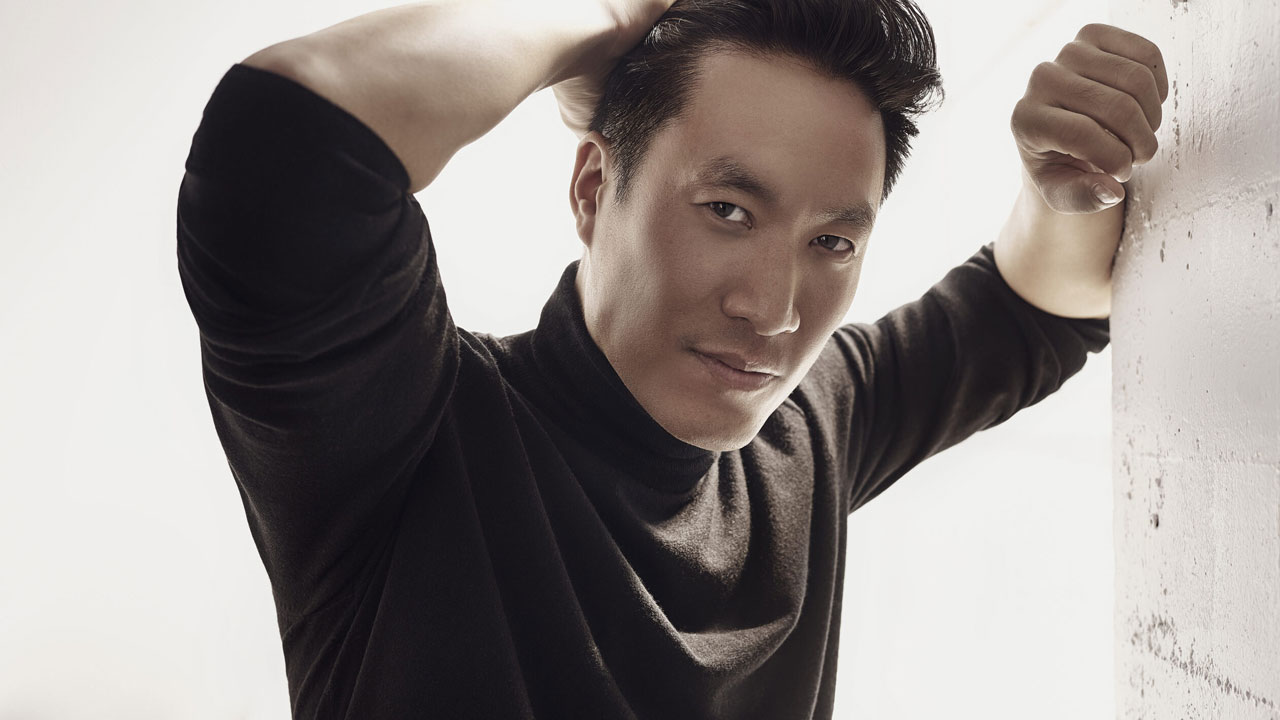
Across the late 80s, Stephen Oyoung sat with a familiar thrill that comes from booting up a shiny, grey Nintendo Entertainment System.
He shared the Player 2 spot with his brother, combining half of his resolve into dispensing 8-bit justice for any sprite standing in their way. Oyoung’s eyes darted back and forth on a CRT to study the frantic, endless somersaults of his character in Contra. Naturally, he would memorize the fabled Konami code to keep his character alive 30 more times. For Oyoung, it added more seconds to see himself in the action hero he dreamed of becoming.
Reading game characters was actually one of Oyoung’s earliest habits for soaking in the action genre, as he grew up in quiet Cerritos, California. As more video games flashed with cinematics and motion captured characters, Oyoung would only add more to his mental checklist for stunts. His arms would later start to move with Naked Snake’s CQC in Metal Gear Solid 3 – learning through an unlikely action hero he connected with for hours across the Soviet jungles. Games would be a direct gateway into pop culture for Oyoung, who would build up a kinetic energy for his own characters on screen. In a full circle, he would later give back to the industry by donning a motion capture suit, as an avatar for the gritty scenes of Halo 2: Anniversary, Star Wars: The Force Unleashed II, Batman: Arkham Origins and Destiny 2. A player’s button mashing would trigger some of Oyoung’s movements, which fueled the action for many of the game industry’s acclaimed hits.
Oyoung would become lost in these realms himself, following decades of binging comic books, games and motion pictures. Big budget projects like John Wick, The Last Ship, Deadpool, Star Wars and new work on Jupiter’s Legacy gave Oyoung a chance to choreograph the fun that keeps audiences glued to the screen. Actions spoke for him as a stunt and fight coordinator, training stars including Denzel Washington, Keanu Reeves and Josh Duhamel. Of course, recent audiences might have heard him louder and clearer as Martin Li/Mr. Negative in Marvel’s Spider-Man. Opposite of Yuri Lowenthal, it’s one of the motion capture roles propelled with a fiber of stunts and raw voice work.
Oyoung’s latest role as Tectonic in Jupiter’s Legacy would renew his mission to be there for audiences. In ways where consoles and media gave him a few unforgettable role models, Oyoung hopes to do the same for Asian American communities. More importantly, for audiences he wants to bring together with a literal and narrative punch on screen.
To commemorate Asian (AAPI) Heritage Month and in celebrating all things action, CGMagazine spent some time with actor Stephen Oyoung who talks about his role as Tectonic in new Netflix series Jupiter’s Legacy, representation through on-screen presence and gunning to star in cult game classics.
CGMagazine: Travelling back in time for a bit: what’s your earliest and fondest memory of playing a video game?
Stephen Oyoung: For the longest time when I was in elementary school, my older brother and I, we tried to get the first gen Nintendo. We begged our parents for months and months, it felt like years and finally we got our first NES. The NES. Big, thick grey thing with a big cartridge. Not the Super Nintendo, but the one before that. But once we got that, we played Contra. That was our game man. Contra and Castlevania. We played that for hours and spent whole summers playing that. And once we got the cheat code for Contra, up, up, down, down, left, right, left, right. b-a, start, (The Konami Code) that was all she wrote.
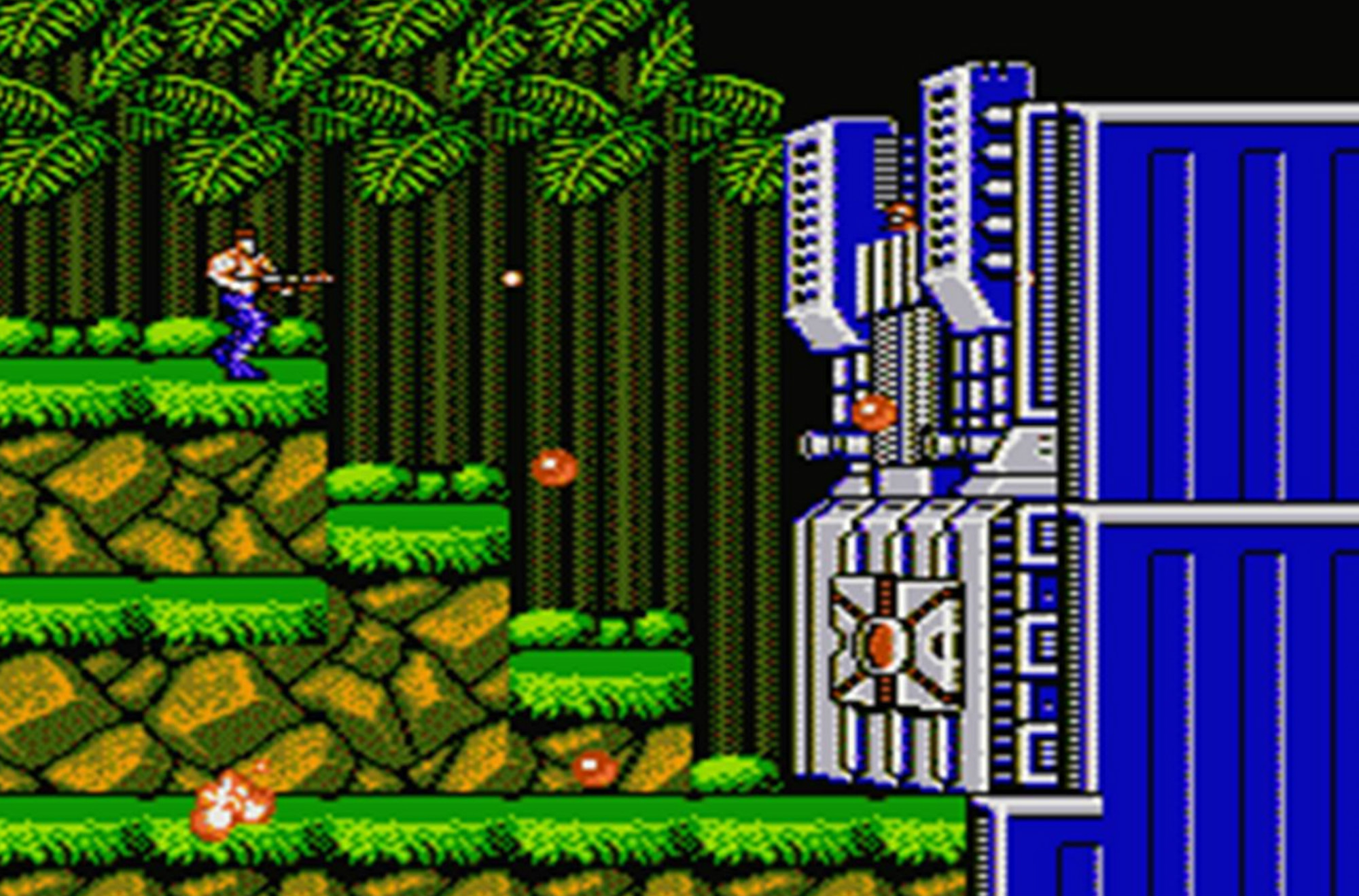
CGMagazine: In having those video games factor early on into your life, was it an interesting moment for you when touching on things like video games, pop culture and media for the first time?
Stephen Oyoung: I mean, they all go hand in hand, right? Like video games and movies and comic books. I was a huge comic book fan growing up as well. So yeah, you could waste a lot of time losing yourself in all of these worlds. Little did I realize, that now, that waste of time actually turned into a career. So it’s been a blessing. I can’t say enough good things about video games. My favourite video game of all time, though, has got to be Resident Evil 4. It’s a tie between RE4, and Metal Gear Solid 3 Snake Eater. My Lord, I love that one so much.
(chuckles) It’s the first time I’ve been scared by video games, you know! Because I didn’t really ever play the Silent Hill games or anything like that. And I didn’t really play the Resident Evil games, initially too because I’m not that much of a horror fan. But for some reason that (RE4) was the game. I was so scared playing it, but at the same time, it was like an action game too. So it’s very much within my wheelhouse. Something I’m interested in. I just got lost playing that game, man. Love it.

CGMagazine: Being with games growing up, how did that kind of factor into your own stages? From someone who’s been through high school, playing games with friends and all the way to going into acting?
Stephen Oyoung: I’ll just say this. Y’all kids are lucky today, man! Video games are nuts (laughs). The graphics now have ray tracing capabilities. Like we literally started on the Atari, right? The Atari 2600, playing Pong and then going from Nintendo. I had floppy disks. That was one of the games that I also love too is Oregon Trail, playing in elementary school with all my classmates. We’d all be the hunter. We’d be the banker, and then we’d go be hunters and hunt for squirrel. And that was our game.
I mean, the video games have progressed with us all through our lives. And then when I went to college, that’s when we had LAN parties in Counter Strike. Oh my goodness, everyone was playing CS. We almost failed our classes playing (laughs). And then, but ironically, Counter Strike helped me too with all the tactical stuff (training and coordination). So in terms of how you asked about my acting, again it all goes hand in hand. It builds your imagination, right? You get to play in these worlds in your head. That only helps the acting. So I actually really found acting to be very natural, because I was always surrounded by this kind of media and by these kind of stories, and they’re always kicking in my head. So I always had something to fall back onto.
CGMagazine: Obviously, you’ve been behind a lot of different big productions on screen (Star Wars, John Wick, Sicario, Deadpool, The Equalizer 2). From playing one super-powered character in Marvel’s Spider Man to another in Jupiter’s Legacy. I have to ask, is there a big difference with acting in a show versus a video game these days?
Stephen Oyoung: That’s a great question. I would say the actual production is still very different. Producing a TV show, you still have all the camera setups. You have the sets. Video games, you’re in a stage. You’re in a soundstage with all the motion capture cameras around you. You can do a million setups in a motion capture volume. But you can do 10 setups on a day shooting film.

But as far as the story content goes, I think the line between a video game story, and TV and film story, they’re gone. You know, they’re totally gone. The quality of writing is right there. The drama that they bring, the characterization. It’s all there. Spider Man PS4 was like a HBO miniseries if you watch all the cutscenes. So I actually love video games for that reason, because we can do a lot. You can just jam in a lot of story. And you don’t have to worry about costumes, you’re already in the motion capture suit. It’s actually very free in terms of the performance. You may not even necessarily need to worry so much about camera angles. You can literally just – I say it’s like the closest thing to performing on stage. Only now you guys get to see it, on your consoles.
CGMagazine: And obviously before games went all cinematic, at what point did you kind of realise for yourself that games were starting to be like movies?
Stephen Oyoung: Oh, man. It’s like such a cliche. I keep saying it. But I keep going back to it. But it’s Resident Evil 4 and Metal Gear Solid. I mean, all the Metal Gears actually, now I think back on it. Where it had these amazing cinematics. Oh, why am I forgetting, my roommate in college – he loved Final Fantasy VII. But that was the one where I definitely watched that. THAT is the moment where I was like, “this is a movie. This is insane.”
CGMagazine: Going back to how you were growing up with the games, you mentioned playing across different places, like elementary school to college. Now, what was the kind of moment or trigger you had where you said, “Okay, I definitely want to be an actor at this point.”
Stephen Oyoung: Great question. I was always acting since I was a kid. I was acting out in class, I was doing school productions and this and that in high school. I never really considered acting as a career. Even when I was going to college, I was trying to be, like a graphic designer. And after I graduated college, I was big into martial arts, I was thinking, “oh, maybe I will open up a martial arts school,” because I love Wu Shu. I was obsessed with it.
And my father and my mother, you know, they were the ones that actually pulled me aside and they said, “What would you do for free?” when I was trying to decide what I would do. And I said, “You know, I would act for free.” If I wasn’t scared of rejection, and I knew it was gonna be okay, I would act. And then they said, “Well, I think you should do it. We’ll support you. We’re behind you 100%.” But my father said this; he was like “you should do it for 10 years. I’ll give you 10 years. If you can’t get one role in 10 years, you got to quit my friend.”
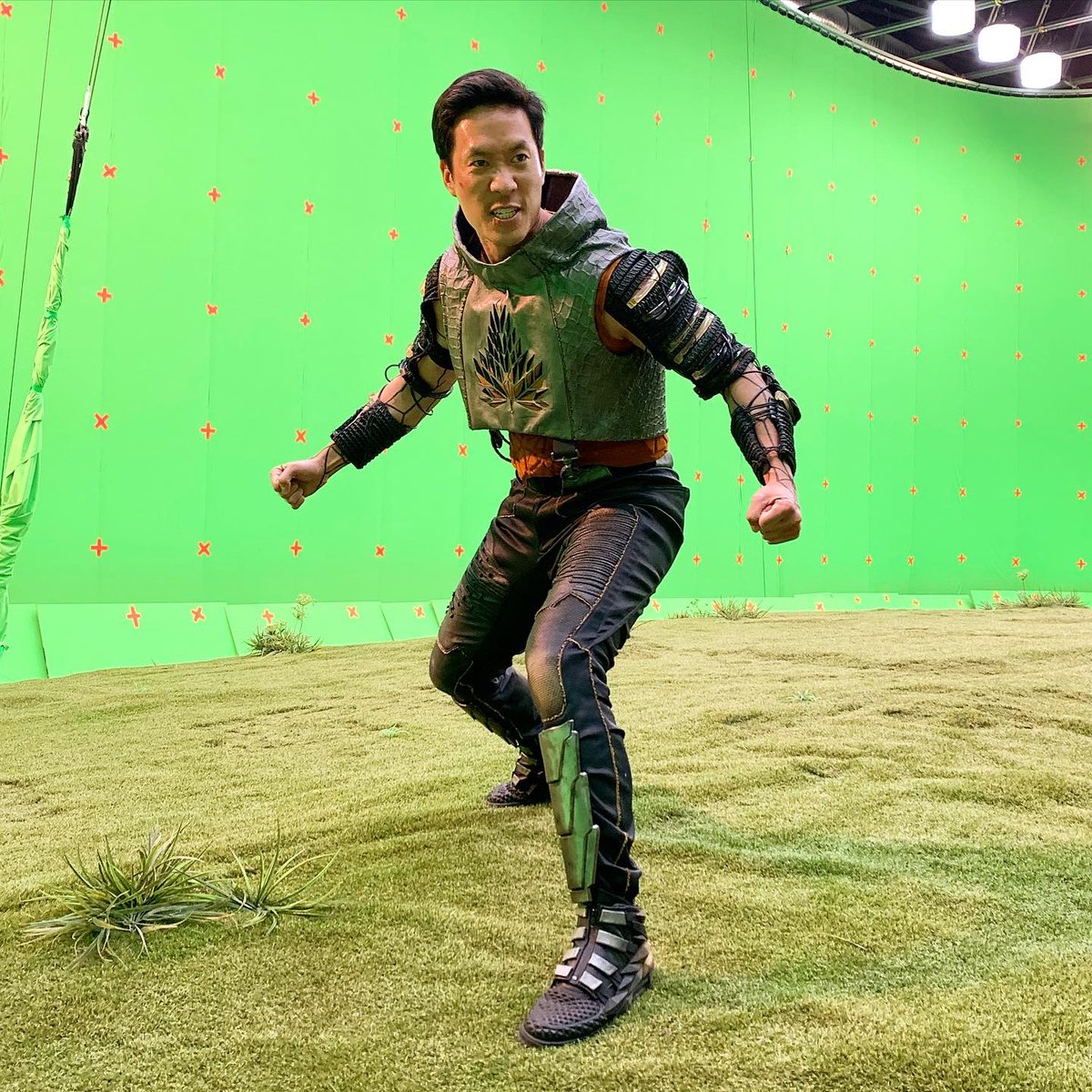
So I said, “All right. That’s a fair target to hit.” If I can’t get one acting role in 10 years. But luckily, out of college, I got my first professional acting job at this place called Pirate’s Dinner Adventure in Buena Park, California. It’s basically like Medieval Times, but with pirates. And from there, I was introduced to the world of professional stunts. Because a lot of people there were working in Hollywood as stunt people, and I never considered that would be a pathway into acting. But actually, now that I think about it, it was the perfect melding of the two because obviously, I wanted to be an action actor. I wanted to be the next Jet Li, the next Bruce Lee, the next Jackie Chan. And with stunts, I was able to do that. So that’s where it all started for me.
CGMagazine: So was there a moment where you were inside that (acting) environment and at that point, you had (that) opportunity to bring out your stunts?
Stephen Oyoung: Yeah, the Pirate’s Dinner Adventure show was all stunts all the time and I learned all of my stunt craft, from that show. And then from there, I was able to transition into being a professional stunt man. And then from being a stunt man, I was able to do fight coordinating and fight choreography. And all the while, I was trying to do acting as well. But back then, there were very few parts for Asian American male actors.
So, the great thing was, again, the video games. That kind of saved my life. I was able to do a lot of motion capture for Blur studio (Halo: The Master Chief Collection), I was able to work for this fantastic action director, Phil Cervera, who went on to be the action director for Jupiter’s Legacy. But through those video game cinematics, I was able to, as you say, bring the acting with the action together. And the rest is just following my career now.
CGMagazine: So following some behind the scenes work as a stunt coordinator in the movies, how does it feel to kind of flip that around and actually be in that acting role for yourself and projects like Jupiter’s Legacy?
Stephen Oyoung: Listen, again: dream come true. All this time I’ve been trying to act. It’s very difficult, you know. And the line between stunts and acting; it’s like my first stunt doubling job, where, literally, there was a plastic tarp separating the stunt crew, from the actors. I LITERALLY had to make the jump to become an actor. So now that I’m an actor, I want to advocate for the unsung heroes of this business. The technicians in this business that don’t get their story told a lot. So I fervently believe that there should be an Oscar category for Stunts. I think stunt people should get the recognition they deserve, because they do a dangerous job to entertain people. As far as now being the actor, you know, it is great. It’s also wonderful, because I could still bring my stunt experience and my fight experience to doing (authentically) my own stunts. So you know, a lot of people are very proud to say, “Yeah, I do my own stunts,” but it’s like, I do my own stunts to put it that way (laughs).
CGMagazine: As a stunt person I can imagine, audiences taking away obviously the moves, the jumps or the different punches you’re making. But now that you’re kind of in that acting role, and viewers are at home watching things like Jupiter’s Legacy and seeing Tectonic (Oyoung’s character) on screen, what’s the kind of new takeaway that you hope audiences will be thinking about?
Stephen Oyoung: I just hope, especially now, with AAPI month and Stop Asian Hate, and the stuff that’s going around in the country; the violent crimes that are targeting the most vulnerable members of our community, you know, my mother is a in the demographic for these targets, right?
“I hope when they see a guy like me – when they see my face on screen, I hope that the general public starts to form a clearer picture of Asian Americans.”
I hope when they see a guy like me – when they see my face on screen, I hope that the general public starts to form a clearer picture of Asian Americans. You know, the you get to see the full spectrum of Asian American than our experience in America. That we’re a part of America, that we’re part of this world and that we’re not going to be weak. We’re not going to be victims. We’re not going to be scapegoats. I think these performances, I hope that they humanize us and get people to accept us.
CGMagazine: What are some of the conversations that you’ve been having with yourself personally, or communities about the anti Asian racism that’s happening?
Stephen Oyoung: Well, the biggest conversation is just everybody’s got to be safe. You know, they’re never picking on guys like me who know martial arts. They’re always picking on these different targets, what they consider easier targets. So the biggest conversations I have is I’m telling all my loved ones, you know, you got to just watch out, got to be careful. I believe that this will pass. I believe that this is the dying gasp of an evil generation, but we have to just stay vigilant and pull through.
I don’t have superhero powers in real life. But I’ve been searching for a long time for concrete ways to help. And I believe that, you know, gofundme.com/AAPI is a great one stop resource because you can donate to specific individuals who have been victims of these crimes, you can read about their stories. And then you can also donate to a fund that contributes your donation nationwide, to a variety of Asian American, Pan Asian American charity organizations.
CGMagazine: And I wanted to jump back to that kind of representation as well. Now with video games bordering onto movies in terms of production, is there also work to be done in that kind of “meta” (virtual, simulated) landscape for that medium compared to Hollywood?
Stephen Oyoung: Well, I think there’s always work to be done. And there’s always more stories that we can tell. And there’s always more perspectives that we can share. I believe everybody wants to be seen, and everybody deserves to be heard. So yes, there’s definitely more work to be done. There’s more representation that can be had. And it’s not just our community, you know, it’s not just AAPI – it’s every community. Everyone wants a voice. So yes, having said that, I do believe that video games and the video game industry is pretty diverse. Yeah, I’ve seen it myself. You know, even our cinematics director on WB Montreal, Wilson Mui (my boy Wilson). It’s nice to have people in the community be working behind the scenes as well and to not feel like I’m the only one out there. Because for many years, Asian American actors, the Asian actors in Canada as well and across the world, I’m sure feel like “oh, I’m the token.” But it’s nice to not be the token.
CGMagazine: So now that you’re breaking into that acting spirit, and starting to take some roles, what are some of the questions that you ask yourself before saying yes, or putting that pen on that paper?
Stephen Oyoung: Ooh, great.
One: am I going to get paid (laughs)?
But two: especially with how things are going in the world today? Like, is this going to be helpful? Or is it going to be hurtful? I’m okay playing a stereotype, as long as it’s an interesting stereotype, as long as I’m saying something new. And as long as I’m not being a detriment to our community. And one of the biggest things for me is to not be a punch line. So I know there’s a lot of funny roles out there. But there’s a difference between laughing with the character and laughing at the character. And so that’s my biggest; one of my biggest criteria right there.
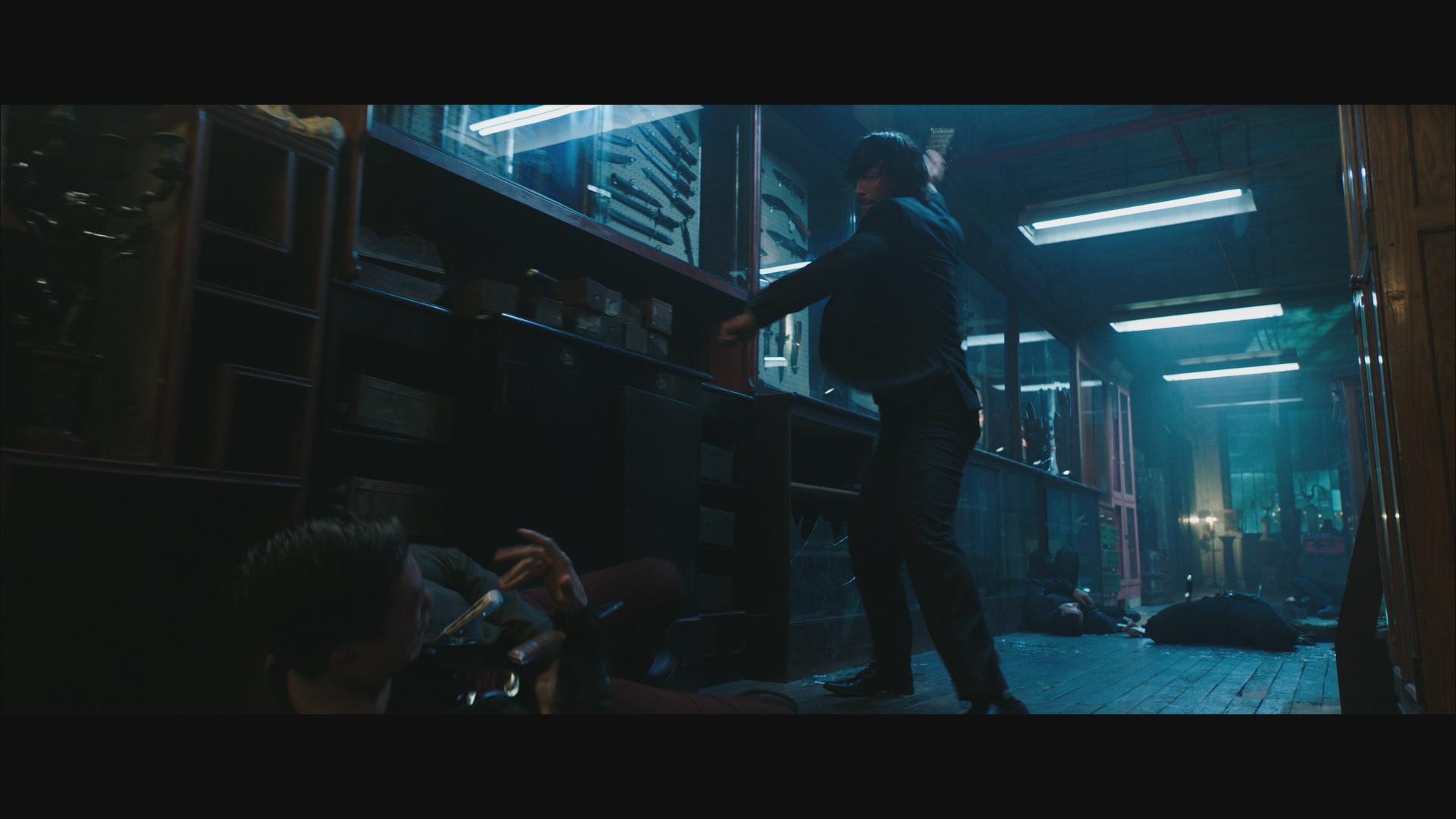
And the other thing: is it fun to do? Can I either do action, either do fights? Or is there something about the character? Is there a secret that the character has, that I can play with? You know, I love intensity too. Is there something in the character that he’s fighting for or that he’s struggling for? And I feel like, maybe it’s cathartic for me, to play these characters that struggle. Even if they lose, but that struggle for me is like an emotional release. I must be working through something.
CGMagazine: When you’re actually in these roles, and you obviously (probably) know the fact that there are rows of people watching as you’re doing these acting roles. Who do you picture sitting in these seats?
Stephen Oyoung: Ah, that’s a great question. You know, my late father, that would be probably number one. I just hope that he’s proud. So, as far as all the other people, honestly I’m all about the world. I’m not picturing one colour in the seats, or one gender, or one type. I would like my work to be embraced by everyone. I feel like entertainment is the easiest, most effective and fastest way to bring people together. Everything else in this world is so divisive. But art and entertainment, you know, even mass entertainment. It’s the one thing in this world that we have today that can bring all cultures together. And that’s very important to me.
CGMagazine: And in that context, have recent events around the world changed the way that you see yourself or think of yourself as an actor?
Stephen Oyoung: I’ve always felt a responsibility. I’ve always been critically aware of my presentation as an Asian American man, even outside of just being an actor. But obviously, with the past four years and recent events now, it’s even more important than ever. I would say that there’s less frivolity in my choices now. I’m aware that everything we do has consequences. Everything we do affects how people think about us. Everything we do can either inspire or demoralize the next generation as well. So I am just trying to do my best out here to set a good example. And to be a good artist, and to make something interesting. That’s the other thing too. You don’t ever want to be boring, right? So the worst thing you can be as an actor is boring. So I’m trying not to be that guy.

Clement Goh: Without sugarcoating it, we both grew up in Asian (Chinese) households. So thinking back from where you are now to before; when your dad was telling you about your decisions or where you want to go. How has your position in life now, changed the way your family saw that decision (to join Hollywood) decades ago?
Stephen Oyoung: Well, they’re very proud. So I’m always very grateful. I feel very lucky to have the parents that I have. I always laughed too, because that is the typical stereotype of the Asian parents that are disapproving, that want you to be in the traditional role or career. And I always say, for every one of those parents, there’s got to be some parents that are like mine. I will say this too. Ironically, pursuing the dream of acting, it has definitely taught me this: sometimes pursuing the dream can be just as hard as not pursuing the dream. Everybody always says, “Oh, you know, you’ll regret it if you don’t pursue your dream.”
Brother, trust me. Sometimes I’m okay with a day job, you know something a little more secure. Everything has its issues. One thing that I would like to stress, this is my personal belief, is that I want to put it out there that our Asian parents, the majority anyways, that they love us. They love you. They love me, right? And if they’re hard on you, and they don’t show affection in a traditional way, right? It’s because bro, most of them – if there are like you and me our age, right, and most of them came from war torn countries, man, they came, they are immigrants.
They came and they did things that none of us can even imagine doing. They have a strength and a dignity, to make a life out of nothing to learn a different language, assimilate in a different culture. And so I always gave my father a hard time, because he’d always say, “Oh, you ABCs, you American Born Chinese.” Kind of dismissively. But now I realize that I am super privileged. And a lot of us are super privileged. So I give it to the parents, I give it to our generation for doing what they did, and for doing what and doing what they do now.
That is to make a life for us.
CGMagazine: Now that you’ve moved out, and you’re in LA taking on that kind of independent role; when you imagine your parents over your shoulders telling you different things as you’re carrying on with your day. What are some of those things that your mind keeps hearing or going back to?
Stephen Oyoung: Well, I don’t have to picture it, because my mom texts me all the time. And I see her all the time. And she tells me, I’m proud. She says she’s very proud of me. So that’s the thing that really keeps me going too. She’s like my manager. She always says she’s like my manager. She’s my mom-ager. She’s my biggest fan. You know, and maybe this is stereotypical too: Chinese kid, his mama’s boy, whatever (laughs) but it is what it is. So I do it (acting), because I know they’re proud. And so because of that, I just, I have hope. I have hope for the future.
CGMagazine: So with taking these ideas and going into a project like Jupiter’s Legacy, what was it like kind of being on that screen? And what was your kind of place that you imagined for yourself when you’re around actors like Josh Duhamel and the other cast members?
To be around Josh and all the other actors, we have to establish like a chemistry. So the good thing about that is we trained for four weeks, basically for a fight scene that was two minutes long. But by doing that, for training that long and together every day, the chemistry came together, we really were like a bunch of friends. I’m still good friends with a lot of the cast, Andrew Horton and Gracie, you know, they’re great people.
And as far as being on Jupiter’s Legacy, the number one streaming show globally, right. It’s everybody’s dream to be in the superhero suit and to get your own suit. So for us, it was amazing because it was, I always say it was like the Super Bowl moment, right where you’re in the locker room. You know, we had seen the the costumes being made for from, like, a few months. And then finally, we’re all in our own costumes all together for the first time, going out to go film this fight where we just beat each other up for like two weeks straight. But in that moment where we’re all in our superhero costumes, it was feeling like you were going to go step out of the Super Bowl and try to win the game. It was surreal. It was a dream come true.
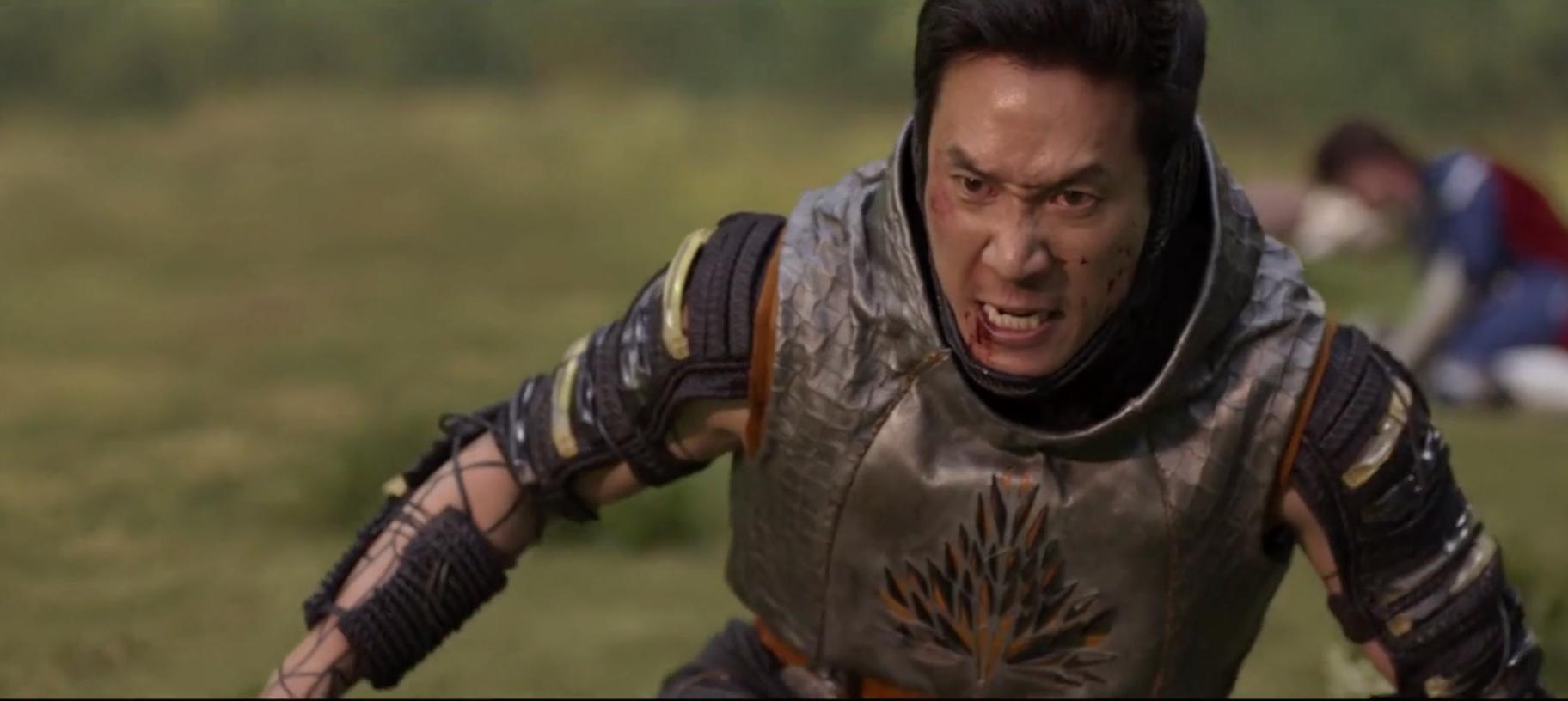
CGMagazine: As someone who’s seen some of these actors, even before you jumped into that role yourself, like when you were younger, you were seeing, like actors like Keanu Reeves in The Matrix. But what was going through your mind when you finally got to meet them face to face and work with them on different sets?
Stephen Oyoung: The first thing I think is, “don’t say something stupid.” Don’t say something stupid, be professional and do your job. That’s what I’m thinking. And that has carried me well. At the end of the day, we’re out there to do a job. We’re out there to entertain. When I was working with them, I was there to teach them and to design fights for them. And for the movie, and to serve the movie. And you know, when I got killed by Keanu Reeves in John Wick 3, it was like a dance partnership. Yeah. So I need to make him look good. And he’ll make me look good. And we’ll both look good. And it’ll be great for the movie. So that’s what goes through my head when I work with these people.
CGMagazine: And are you hoping that you don’t end up like Sean Bean who dies in like, every movie?
Stephen Oyoung: (laughs) that is so funny that you say that, because I literally call myself the “Asian American Sean Bean”. But you know, I’m gunning for “Asian American Samuel L. Jackson,” where he’s in everything. That’s my thing. That’s my next goal.
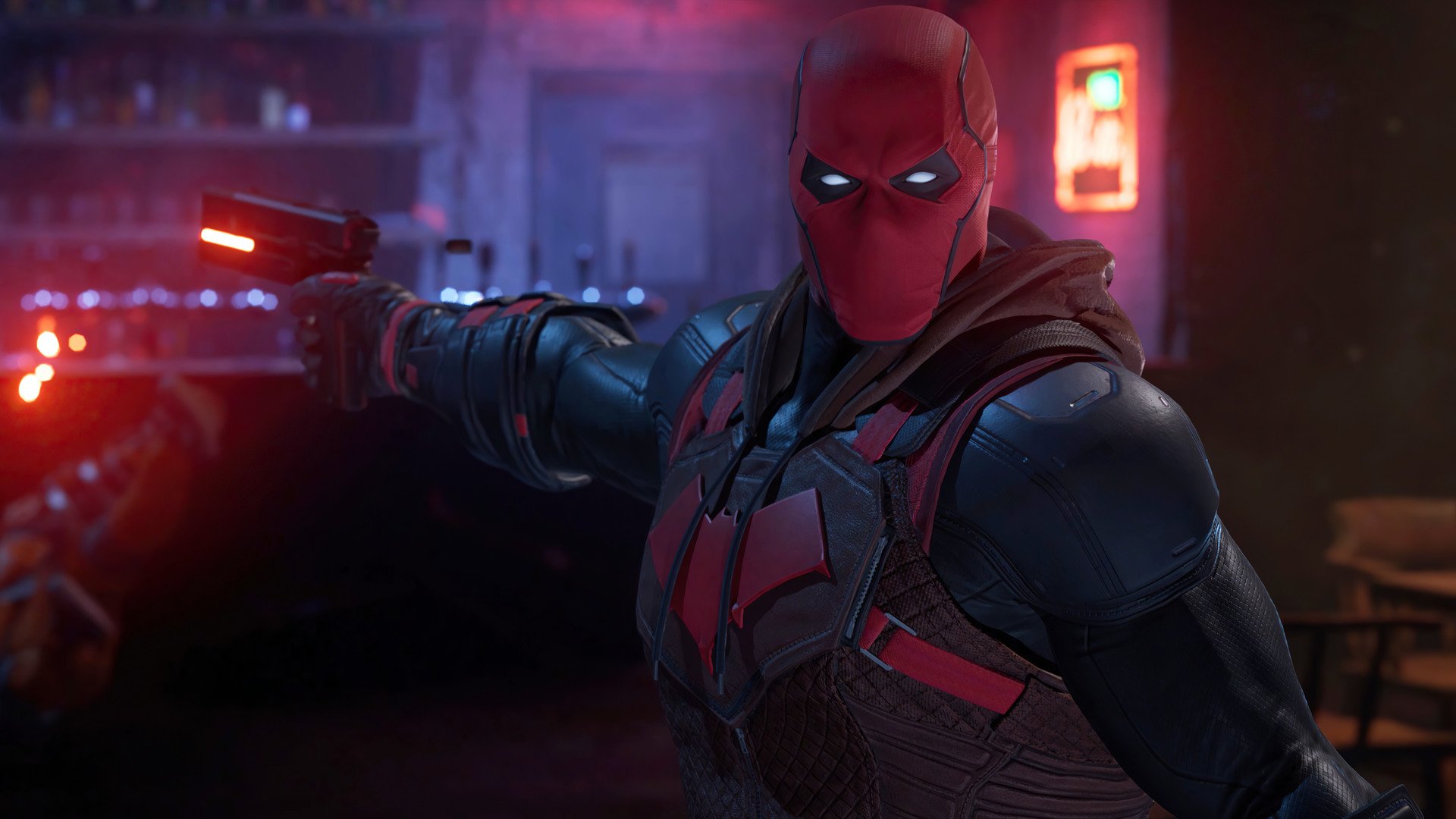
CGMagazine: Ahead of your next video game role in Gotham Knights, I know you can’t talk too much about it. So going into a role like the Red Hood, what kinds of research have you been doing to help you get settled into that mask?
Stephen Oyoung: I read Under the Red Hood. And I watched all the DC animated movies, because especially for the voice. I wanted to see what people like about the voice. So Jensen Ackles. You know, that’s a tough act to follow. I also replayed Arkham Knight. So, that’s another tough act to follow. And then you have Injustice 2, Red Hood appears in that as well. So what’s funny is that I have these three or four vocal performances. You have Yuri Lowenthal (as Red Hood in Batman Ninja) actually doing that as well. So I have these four performances, and I’m like, “Okay, what what do people like?” At the end of the day, I just have to do what I have to do, because people are not going to want to see an imitation. They’re not going to want to hear an imitation of somebody else’s work. But yeah, I try to be as deep as possible. If anybody’s worried.
CGMagazine: Before I let you go, I wanted to ask about the types of games you like playing and what’s currently on your backlog right now?
Stephen Oyoung: I love playing the third person over the shoulder ones. Like Uncharted, things like The Last of Us. Those are the games that I love. I can’t do puzzle games. I don’t know what that says about my brain or I don’t have the patience. But those are the kind of games I love. Action Adventure games. What’s on my backlog? Well, obviously I want to play Gotham Knights. That’s the thing I just played a little bit when they were first starting out. So now I’m really excited to see the mechanics on that. Yeah, that’s on my backlog.
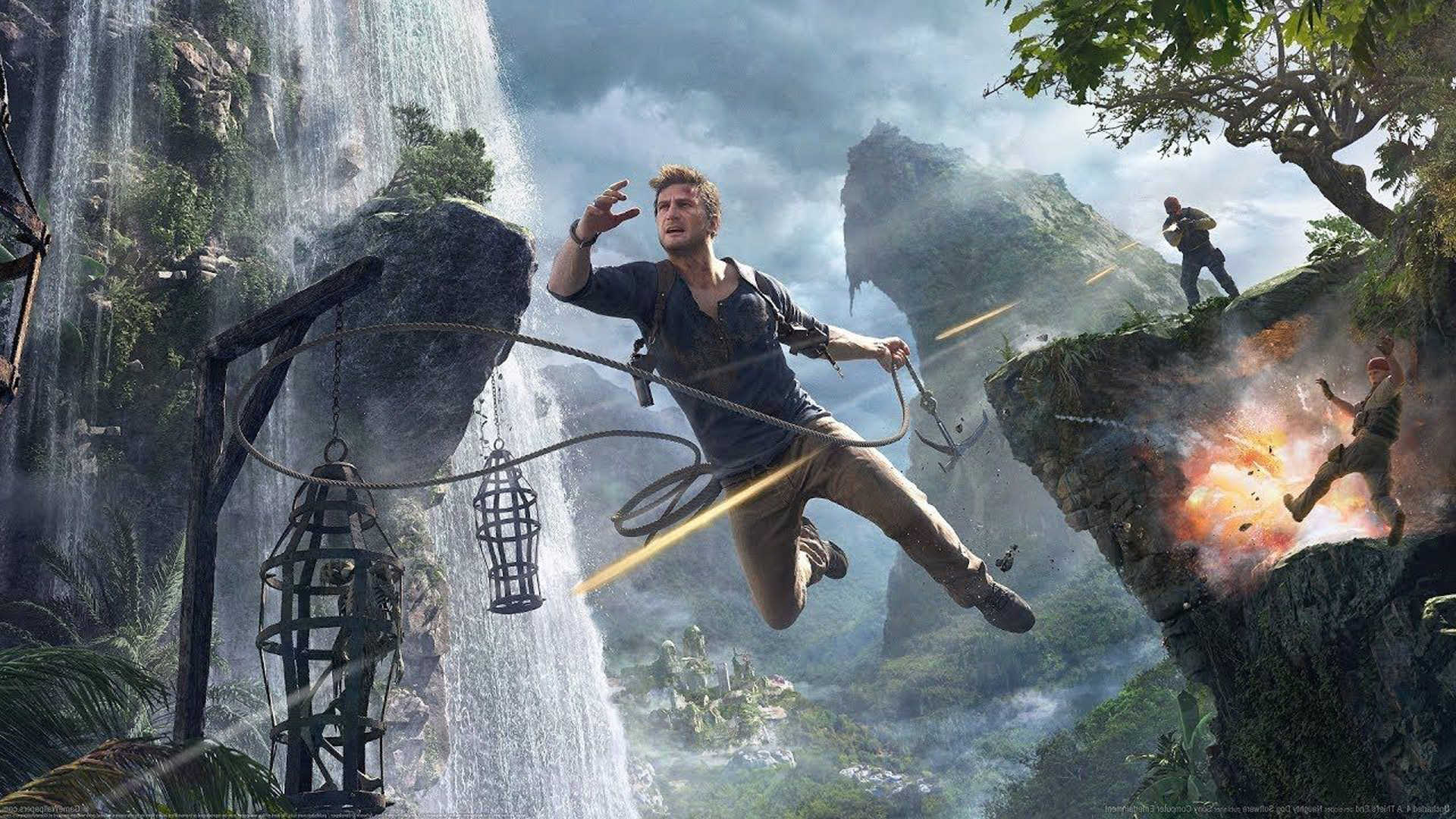
CGMagazine: You said you were into third person games. What is it about just looking at your own character on that screen that speaks out?
Stephen Oyoung: First, I love to see the character in action, right? It’s kind of like watching a comic book or watching a movie, but you’re controlling it. You know, when you’re in the first person, and you only see the hands, that’s very hard for me to get into it. Plus, I feel like when it’s shown like that, I can’t I just physically, technically can’t see most of the world. I like to see more of the things, you know what I mean? And when the character is jumping, or the character is traversing or fighting, I want to see them doing all of those moves. I think that’s why I’m drawn to it.
CGMagazine: And what’s your kind of dream video game character role? Who do you want to be if you were offered the opportunity?
Stephen Oyoung: Ooh. Being Mr. Negative, and Red Hood was a dream come true. But yeah. Come on. I’ll say it. Batman. Like that would be a dream role. Frankly, if they do a Sleeping Dogs 2, I’m gunning for that. So you know, if they do Sleeping Dogs 2, I’m just all about the sequels (laughs). Get me on Sleeping Dogs 2, get me on Ghost of Tsushima 2. Let me be “the guy”. Those are the dream roles.
